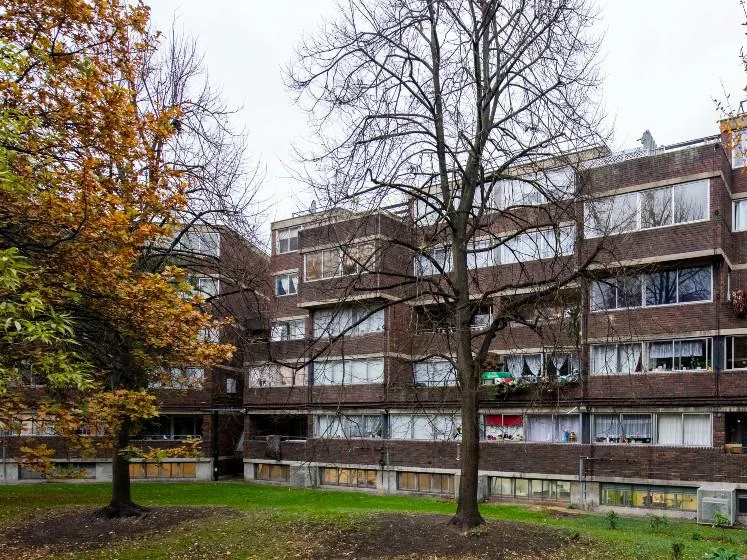Most residents on estate surrounding Grenfell Tower support refurbishment plan

The majority of residents on the Lancaster West Estate, which surrounds Grenfell Tower, are satisfied with an ambitious plan of refurbishments across the estate, according to a new independent report undertaken by LSE.
Following the Grenfell Tower tragedy in 2017, a commitment was made by all levels of government to undertake a comprehensive resident-led refurbishment of the estate, delivered sensitively and collaboratively with the local community. The aim is for Lancaster West to become a 21st century model social housing estate.
Funded by a combination of council funding, alongside central and regional government, and the European Union, it includes the deep retrofitting of homes, alongside the installation of a renewable heat network. The council aims for the estate to be carbon-neutral by 2030.
Research led by Laura Lane at LSE’s Centre for Analysis of Social Exclusion (CASE) asked residents how they felt about their homes, and what they thought of the proposed refurbishment and the engagement surrounding it.
According to the report, years of poor maintenance and neglect of the estate by the previous housing management provider – KCTMO - had damaged trust, and the challenges residents face as a result of this lack of investment have been framed by the experience of the Grenfell Tower tragedy. It says: "The fire was one of the UK’s worst modern disasters and had wide reaching impacts, including the traumatisation of hundreds of residents."
Following the tragedy, a locally based neighbourhood management team, Lancaster West Neighbourhood Team, was created by the council and took over the running of the estate. This meant that, on the whole, residents felt able to reach out to someone if they had a problem, according to the research. It found that, overall, half of the respondents felt they could now trust staff.
Researchers also found that more than half (56 per cent) of residents felt that they had been sufficiently consulted over the refurbishment and had an opportunity to provide feedback on any plans.
On the whole, a majority (70 per cent) of residents felt ‘positive’ about the refurbishment works, with a minority of around a fifth (18 per cent) still lacking confidence in the project.
Concerns and doubts that were raised focused mostly on the disruption that would be caused through noise, mess, and possible relocation; as well as a more general lack of confidence and uncertainty that the project could be delivered on time and on budget.
Around 70 per cent of residents felt positive about the level of communication with the Lancaster West Neighbourhood Team.
The report concludes that the key lessons learned so far are that engagement is challenging, communication is critical, and building trust is vital.
It recommends that this must continue to be a focus for the Lancaster West Neighbourhood Team as the refurbishment takes place. It is expected that the majority of work will be completed by 2025/26. The LSE team will continue to evaluate the refurbishments’ impact on residents as the works progress.
Professor Anne Power, Head of LSE Housing and Communities at CASE, said: "This report covers the first stage of our research during which we have spoken to the residents and other stakeholders involved in the refurbishment of Lancaster West Estate. There are valuable lessons to be learned in terms of inclusive and effective community engagement, communication and trusted local neighbourhood management. We are grateful to the residents for sharing their views on their homes, the neighbourhood and community, and the planned refurbishment and we look forward to revisiting the residents soon to hear more."
Cllr Sof McVeigh, Lead Member for Housing Management, Housing Safety, and Building New Homessaid: "The work we are doing with residents at Lancaster West is a key objective for Grenfell recovery, and sets the bar for how we want to work with residents across Kensington and Chelsea. With over half of tenants’ homes now internally refurbished to a co-designed standard, it’s good to see that the majority of residents support the work we are doing, and equally as important the way we are doing it – with residents at the heart. With that said we must not get complacent and will continue to actively listen to those whose support with have not yet secured. We are on a journey to become the best council for our residents. and still have a way to go to ensure we’re getting this right on every estate we manage."
Read Creating a 21st Century Estate: the experiences of Lancaster West Estate residents here:
https://sticerd.lse.ac.uk/CASE/_NEW/PUBLICATIONS/abstract/?index=10598